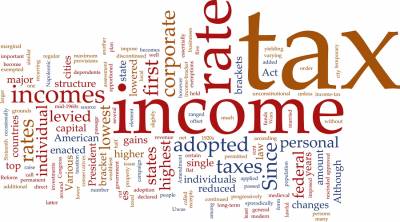DiSabatino CPA Blog
Do You Need to File a Tax Return?
One of the more common tax questions is whether you need to file a tax return this year. The answer is: It all depends. Here are some quick tips to help you determine your answer.
Income
If your gross income is less than the sum of your standard deduction plus the amount of your personal exemption(s) you usually do NOT need to file a tax return. This is because both of these deductions effectively eliminate any taxable income. The amounts for 2015 are:
Married filing joint: $20,600 ($21,850 if one is 65 or older; $23,100 if both are 65 or older)
Head of household: $13,250 ($14,800 if age 65 or older)
Unmarried (single): 10,300 ($11,850 if age 65 or older)
Over age 65
As noted above, if you or your spouse are over the age of 65 the income required to file a tax return goes up by $1,250 (married) to $1,550 (single/Head of Household) for each of you that meets the age threshold.
Exceptions
Like most tax laws, there are exceptions to the income limits mentioned above. Here are some of the more common situations where filing a tax return may make sense.
- You have federal or state withholdings. The ONLY way to get money back that was withheld from a paycheck or 1099 is to file a tax return. If you do not do so within three years, your refund will be absorbed by the government. While the IRS is quick to let you know that you owe them money, there is no such program to let you know that a refund is due to you.
- You are eligible for a refundable credit. Refundable credits will pay you money even if you don’t owe income tax. For example, if you have a tax liability of $750, but you are eligible for a $1,000 tax credit you normally can only receive the $750 tax benefit. But with a refundable tax credit you can receive the additional $250, even without a tax liability. The most common examples of refundable credits are the Child Tax Credit, the Earned Income Tax Credit and the American Opportunity Tax Credit.
- If you are a dependent. Special filing rules apply if you are a dependent on someone else’s tax return. If this is the case, filing rules vary depending on your age, your earned income (like wages) and your unearned income (like interest income). In this case it is usually best to conduct a review of your situation.
- Other reasons. Sometimes filing a tax return can be used for other purposes. This includes using your tax return to obtain financing or to receive college financial aid. Another reason is to limit the amount of time your tax return can be audited. Once a tax return is filed, the audit clock starts. After 3 to 4 years most tax returns can no longer be audited. If the return is not filed, this audit clock never starts.
Please give us a call to discuss this or any of our other topics with you, so we can address your specific requirements.
Michael DiSabatino
651 Via Alondra Suite 715
Camarillo, CA 93012
Phone: 805-389-7300
ww.sharpcpa.com
This publication provides summary information regarding the subject matter at time of publishing. Please call with any questions on how this information may impact your situation. This material may not be published, rewritten or redistributed without permission, except as noted here. All rights reserved.
When you subscribe to the blog, we will send you an e-mail when there are new updates on the site so you wouldn't miss them.

